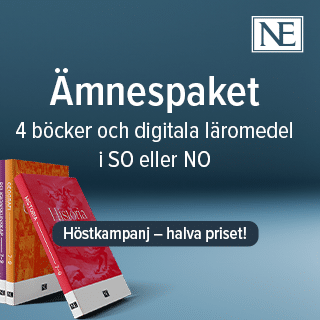Idén om medarbetarskap: En studie av en idés resa in i och genom två organisationer
Karin Kilhammar
Dr. Eva Ellström, Professor Per-Erik Ellström
LiU – Linköpings universitet
2011-09-30
Idén om medarbetarskap: En studie av en idés resa in i och genom två organisationer
Institutionen för beteendevetenskap och lärande, Avdelningen för pedagogik inom arbetsliv och utbildning (PiAU)
Idén om medarbetarskap: En studie av en idés resa in i och genom två organisationer
Avhandlingen behandlar idén om medarbetarskap med utgångspunkt från hur begreppet medarbetarskap tolkas och används. Syftet är att öka kunskapen kring idén och hur den tar sig uttryck i organisationers praktik.
I den teoretiska referensramen har nyinstitutionell teori integrerats med teorier kring lärande och implementering. Strukturen i analysen utgörs av en metafor som behandlar hur populära idéer reser in i och genom organisationer. Centrala begrepp i tolkningen av vad som sker i mötet mellan idé och subjekt vid de olika anhalterna på resan är översättning, lärande och ömsesidig anpassning.
Studien har genomförts i form av fallstudier vid ett statligt bolag och vid ett landsting där medarbetarskapsprogram bedrivits. Resultaten grundar sig huvudsakligen på intervjuer, vilka kompletterats med observationer och dokumentstudier.
Resultaten visar att det skett en ömsesidig anpassning mellan idé och subjekt vid den studerade enheten i landstinget med ökad delaktighet, förståelse för varandra och ett förbättrat arbetsklimat som följd. Idén integrerades i hög grad i den vardagliga verksamheten. Vid det statliga bolaget passerade idén förbi utan några större bestående avtryck i de studerade grupperna och idén integrerades inte i den ordinarie verksamheten. Resultaten kan förstås med grund i hur programmen genomförts tolkat utifrån lärandeteorier och olika perspektiv på implementering. Genomförandet i det statliga bolaget kännetecknades av central styrning och snäva frihetsgrader vad gäller form och innehåll för medarbetarskapsutvecklingen. Vid landstinget var däremot behoven vid de lokala enheterna en grundläggande utgångspunkt för inriktningen på medarbetarskapsutvecklingen där delaktighet i idéutvecklingen och genomförandet av programmet var en ledstjärna.
I översättningen av idén om medarbetarskap i ord finns skiljelinjen mellan personer på olika nivåer i organisationen, snarare än mellan organisationerna. Medarbetare vid enheterna ser medarbetarskapsbegreppet i första hand som ett kollektivt begrepp, där gruppens funktion är i centrum, medan de som representerar organisationsnivån i större utsträckning betonar individens ansvar och agerande. Vilket perspektiv och vilka intressen individen har ser ut att ha betydelse för hur idén uppfattas. Vidare kan den spridning och det genomslag som idén om medarbetarskap fått i svenskt arbetsliv, förstås utifrån dess samstämmighet med tidsandan och den generella utvecklingen som skett i samhälle och arbetsliv.
Abstract in English
The aim of this thesis is to increase knowledge of the idea of co-workership and how it is manifested in the practice of organizations. The point of departure is how the concept of co-workership is interpreted and used.The theoretical framework is based on an integration between new institutional theory and theories about learning and implementation. The starting point of the analysis is a metaphor about popular ideas travelling into and through organizations. Central concepts are learning, translation and mutual adaptation.The study is based on a qualitative case study with two cases, a county council and a state-owned company, where co-workership programs have been implemented. The empirical material consists mainly of interviews. In addition observations and document studies have been used.The results indicate that a mutual adaptation between idea and operation occurred in the studied unit in the county council, with consequences in the daily work, while the idea passed without any lasting impressions at the unit level in the state-owned company. These findings may be understood in terms of how the co-workership program was implemented, interpreted through theories of learning and implementation. The co-workership development in the county council was characterized by employee participation in identifying needs and choice of areas of work as well as a high level of integration in the daily operations. In the studied groups in the state-owned company, the employees did not participate in the planning, and the co-workership program was not actively integrated into daily operations. Hence, there were not the same opportunities for a mutual adaptation between idea and operation as we found in the unit at the county council.In translating the idea into words, differences were found mainly between people at different levels in the organizations. At the organizational level co-workership was viewed as an individual concept emphasizing the responsibility and actions of the individual. Employees in the studied units, on the other hand, mainly expressed co-workership as a collective concept, focusing on the team and how it functions. The interpretation of the concept seems to be connected to the perspective of different parties within the organizations. Furthermore, the spread and the popularity of the idea of co-workership in Swedish working life can be understood in terms of the ideas correspondence with the current zeitgeist, and in relation to the general development going on in society and working life.
Relaterade länkar

Fritidshem
 Åk F–6
Åk F–6 Matematikångest
 Åk 4–Vux
Åk 4–Vux 






